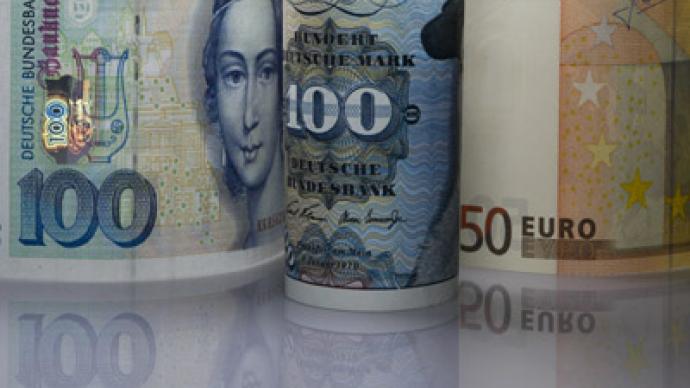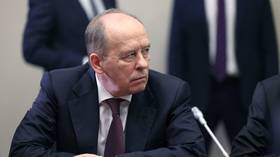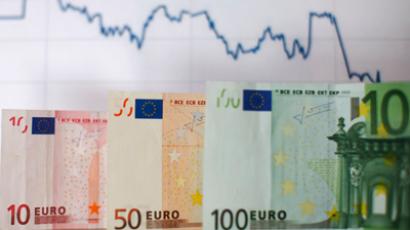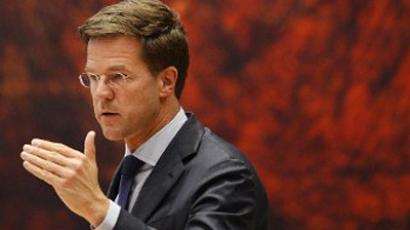Guldenmark? Geuro? What’s next for the eurozone?

Guldenmark – it doesn’t sound pretty, but political economy expert Markus Kerber says the introduction of the new parallel currency in the eurozone is part of a necessary Plan B to save debt ridden EU states from sinking for good.
“We need to have a parallel currency in current account surplus countries to give them a bank of stability,”Markus Kerber, professor of political economy at Berlin Institute of Technology, told RT.The goal is “not to move out of the Eurozone, but to give the corporations and the citizens of these countries a choice whether to have future contracts in the euro or in the new currency.”“I have baptized according to the old Dutch-German tradition the Guldenmark – a mixture of the Gilder and the Deutschemark,” he explained.The idea of introducing a currency parallel to the Euro has been long discussed.Earlier in May, Deutsche Bank experts brought the idea of Geuro as a supplement to the Euro, adding that abandoning the single European currency all together would mean “a widespread default and a collapse of the banking sector.” The new currency tailored by Deutsche Bank experts was supposed to be used for debt repayments, while the Euro would be employed for domestic settlements.Introducing the Guldenmark came as a part of the Plan B for troubled economies, which argues that merely injecting billions in liquidity alone is no solution to Europe’s dire problems. This should be coupled by targeting problems and imbalances in the way European institutions work, Kerber says.“The Plan B is the response to finding a way not only to solve monetary problems of Europe, but getting the way over paralysis of the European institutional crisis.” Kerber argues the status quo, whereby Europe continues financing Greek problems, is great for Athens but unsustainable for other EU members.“The European Central Banks funds the national Greek bank, which is funded by the so-called emergency liquidity assistance. The Greek banks enable Greek citizens to pull out money from Greece and to put it into safe haven countries,” he concluded.














